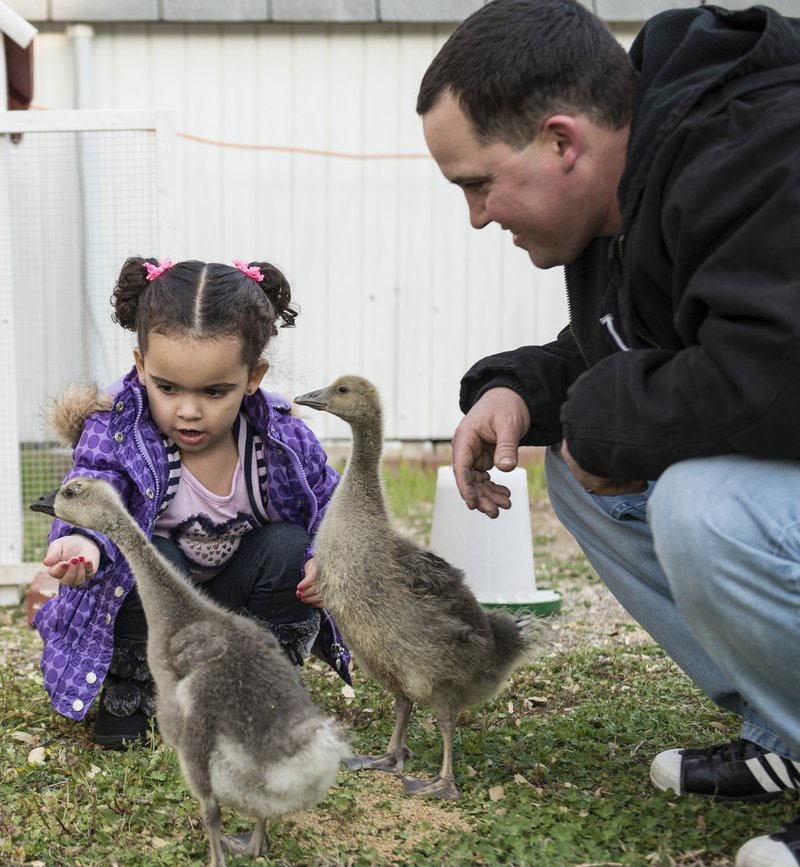There are two houses, 1,000 miles apart, that each contain a child’s play kitchen, a wall of toys and portraits of the same dark-eyed, curly-haired little girl.
In the one in Charleston, S.C., lives a couple named Matt and Melanie Capobianco, who cared for the girl from the time she drew her first breath until 27 months later, when the courts said she must be returned to her biological father.
“We want things to be familiar to her when she comes home,” Melanie Capobianco said. “I know she’s going to know her home and family.”
And in the other house in Nowata, Okla., lives the father, Dusten Brown, who once tapped out a text message saying he’d give up rights to his daughter, but now embraces parenthood. His daughter, now 3 1/2, shows off the room that Brown and his new wife have painted pink and purple.
“Her whole world as of this moment is me and my wife, it’s Mommy and Daddy,” said Brown.
The Supreme Court this week will take up the case of Adoptive Couple v. Baby Girl and take on the role of Solomon to decide in which house Baby Veronica, as she has come to be known, should live.
Veronica’s birth mother chose the Capobiancos to raise the child, and in many states Brown as an unwed father would have little say. But because he is a member of the Cherokee Nation, the court will consider once again the Indian Child Welfare Act.
It was passed in 1978 to end what Congress found to be a shameful practice of removing Indian children from their families and tribes and placing them in foster care and with non-Indian families. The law sought to keep Indian families together by erecting barriers to adoption outside the tribe.
The Capobiancos’ challenge goes to the continued viability of the law — whether Brown should be considered a “parent” under its terms and whether it applies to cases such as this one, where an Indian parent did not have custody of the child.
And the couple and their supporters also argue that Congress could not have wanted the law to be interpreted as putting the interests of the father and the tribe ahead of the child simply because of her race.
Veronica, whose mother is Hispanic, is “3/256th Cherokee,” Washington lawyer Lisa Blatt, who represents the Capobiancos, told the court in a brief.
The case has set off alarms among the tribes, and some child welfare experts, who consider the law the “gold standard” in trying to keep children with their biological parents. Nineteen states and the United States have filed briefs defending the law.
The Supreme Court has considered the act only once, 18 years ago, but with similar wrenching results. The justices overruled a state’s decision about twins who had been placed several years earlier with a non-Indian family and said tribes must have the final decision on adoptions involving those who live on reservations.
Justice Antonin Scalia over the years has said it was one of the toughest decisions he ever had to make. But when the tribe couldn’t find a proper placement with an Indian family, it later decided it was in the best interests of the children to remain with the adoptive parents.
Copy the Story Link
Send questions/comments to the editors.



Success. Please wait for the page to reload. If the page does not reload within 5 seconds, please refresh the page.
Enter your email and password to access comments.
Hi, to comment on stories you must . This profile is in addition to your subscription and website login.
Already have a commenting profile? .
Invalid username/password.
Please check your email to confirm and complete your registration.
Only subscribers are eligible to post comments. Please subscribe or login first for digital access. Here’s why.
Use the form below to reset your password. When you've submitted your account email, we will send an email with a reset code.